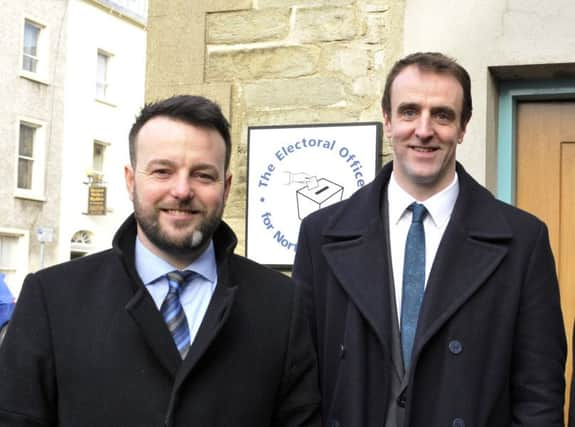PIP assessment audio record rules '˜ludicrous'


Mr. Durkan was responding after disability applicants were advised they could record their interviews with claimant assessors but would have to purchase their own specialist equipment and adhere to guidelines over its use.
Mr. Durkan said the advice was issued in response to claims of inaccurate assessments. He said: “The lack of public trust, fairness and consistency in PIP decisions was a key conclusion of the recent independent Gray Review into the PIP assessment process.
Advertisement
Hide AdAdvertisement
Hide Ad“The same review made a clear recommendation that in the face of this, audio recording of the assessment should be the default, with the option for the claimant to opt out.
“One of the most common concerns constituents bring to me and my party colleagues in other constituencies is the inaccuracy of assessment reports. Audio recording is an open, transparent, impartial and quick way to resolve any disputes about what was said and/ or what took place during the assessment process. As well as helping to enhance public confidence, it affords protections and safeguards to Capita staff and I cannot understand why Capita or the Department for Communities are refusing to take such a reasonable step to ensure greater openness and transparency in the process.
“125,000 people will go through the PIP assessment process here. Each of those people should have the right to a recording of their own assessment. For the Department to say that each of those vulnerable claimants has to buy their own recording equipment, while dictating the specific, costly type of equipment that will only be accepted is outrageous and ludicrous. To place the onus and financial burden of greater openness and transparency on physically and financially vulnerable claimants is a disgrace.”
A spokesperson for the Department for Communities said that it follows the guidance on audio recording set out in the Department of Work and Pensions PIP Assessment guide, whereby customers are permitted to make an audio recording “provided they comply with certain criteria.”
Advertisement
Hide AdAdvertisement
Hide AdHe added: “These include advising Capita in advance of their intention to record the assessment and signing a form agreeing not to use the recording for unlawful purposes. The customer must also provide Capita with a complete and accurate copy of the recording at the end of the consultation. Acceptable formats for such recordings are restricted to CD and audio cassette only. Mobile phones and laptops are not suitable mediums for recording consultations. These restrictions are in place due to the broadcasting and editing capabilities of such devices.”
He said that a pilot of the audio recordings carried out in Britain reportedly had very limited impact. “Moreover,” he added, “a substantial proportion of claimants were not willing to have their assessment recorded however it acknowledged a further feasibility study will be necessary.
“The Independent Review of PIP assessment service in Northern Ireland has been announced and will include a call for evidence. The review will provide an opportunity for this issue to be further considered in a Northern Ireland context.”